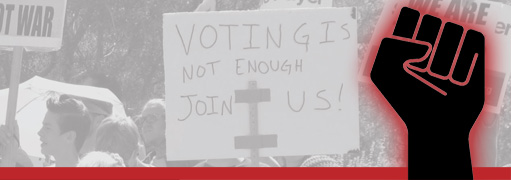Good news, everyone! Despite what many of us long suspected, Mitt Romney doesn’t have anything against the 99%. As it turns out, he only despises 47 percent of the country. You probably already heard this, but let’s review: In a secretly recorded video released by Mother Jones, R-Money told high-roller donors: "There are 47 percent who are with him [President Obama], who are dependent upon government, who believe that they are victims. … [M]y job is not to worry about those people. I’ll never convince them they should take personal responsibility and care for their lives."Fox News predictably took up poor Mittens’ cause, firing back with an October 1998 audio recording of Obama, the money quote of which is "I actually believe in redistribution."To those of us who have been watching his presidency closely, this is hardly surprising: Obama clearly believes in redistributing working Americans’ money to ridiculously overpaid bankers.A little more than a month after Obama took office, his Treasury Department forecasted it would need around $750 billion in bailout money. That’s $50 billion more than the entire original TARP bailout proposed under Bush. Less than a month after that, financial apocalypse patient zero AIG paid out $165 million in bonuses to its chief executives. Bowing to public pressure, some of the companies’ top executives returned some of their bonus money, but the absurd payouts continued—in 2010, the firm handed out around another $100 million in bonuses. And lest you think this is but an ugly chapter from the early stages of Obama’s presidency, consider that this month the Fed announced it will buy $40 billion in mortgage-backed securities from major banks every month for the foreseeable future. On top of this, the Fed is going to lend money to banks at nearly zero percent interest as a policy—again, for the foreseeable future. This means that banks can borrow money for free from the Fed, turn around and lend it to customers at interest rates that will obviously be significantly higher than zero percent, then pocket the difference. Any way you spin it, the federal government is colluding with the banks to rip you off.It’s only logical that Obama would be indebted to the banks. After all, his list of top campaign contributors in 2008 reads like a who’s-who of responsible parties in the financial meltdown: Goldman Sachs, Citigroup, JPMorgan Chase and Morgan Stanley. He looks a little better this year, but Wells Fargo is among the top 20 campaign donors to his 2012 run, according to watchdog group Open Secrets.So it seems the best way to sum up this election cycle is "damned if you do, damned if you don’t." On the one hand, you’ve got a guy who explicitly says he doesn’t care about you. On the other hand, the lesser-of-two-evils candidate is at least willing to mention economic inequality from time to time—but then he turns around and uses your money to make sure the guys at AIG and Goldman Sachs can afford to keep their private jets well stocked with the finest champagne.The casual observer might say Occupy Wall Street didn’t have much to celebrate on its Sept. 17 anniversary. A year after the birth of the movement that made America realize the 1 percent is screwing us, the 1 percent is still, well, screwing us. But Occupy’s victory was in forging a new path, a way around electoral politics. As it became increasingly clear that no elected official was going to make a serious effort to fight foreclosures, Occupy offered another option: Simply don’t leave when you get an eviction notice. The most high-profile victory on this front came from Georgia, where Occupy Atlanta helped Iraq War veteran Brigitte Walker keep her home. Walker had been refused a loan modification and foreclosed on when Occupy Atlanta members did what they do best: They occupied. With a group of activists living in her home and on her front lawn and refusing to leave, the public attention shamed JPMorgan Chase into finally granting Walker a loan modification that let her keep her home.In another striking win for the movement, Occupy-affiliated organizers supported and promoted Bank Transfer Day on Nov. 5, 2011. In the weeks leading up to the event, at least 650,000 people moved their money from major banks to local credit unions, costing the banks an estimated $4.5 billion. Sure, that’s a drop in the bucket compared with the money they got from the bailouts, but it shows that government regulation isn’t the only weapon in the fight against unfair banking practices. This is the major victory of Occupy Wall Street: providing a viable alternative to the corrupt and broken electoral system. From shutting down ports to chaining open subway entrances, the movement has proven that we don’t need to rely on politicians to fight for us. We can fight for ourselves.Sure, Occupy hasn’t brought about radical change in American society—yet. And it may be that the movement will simply fade away. But as political scientists Erica Chenoweth and Maria Stephan found in a statistical analysis of civil resistance movements released last year, the average life cycle of a nonviolent campaign is three years. For Occupiers, that means one down, two to go.
(un)Occupy Albuquerque First Anniversary CelebrationYale Park at UNMSaturday, Sept. 29, 4:30 p.m. unoccupyabq.orgAndrew Beale is a participant in (Un)occupy Albuquerque, but he does not speak on behalf of the movement. He recently moved to the Palestinian territories.The views expressed are solely those of the author.






